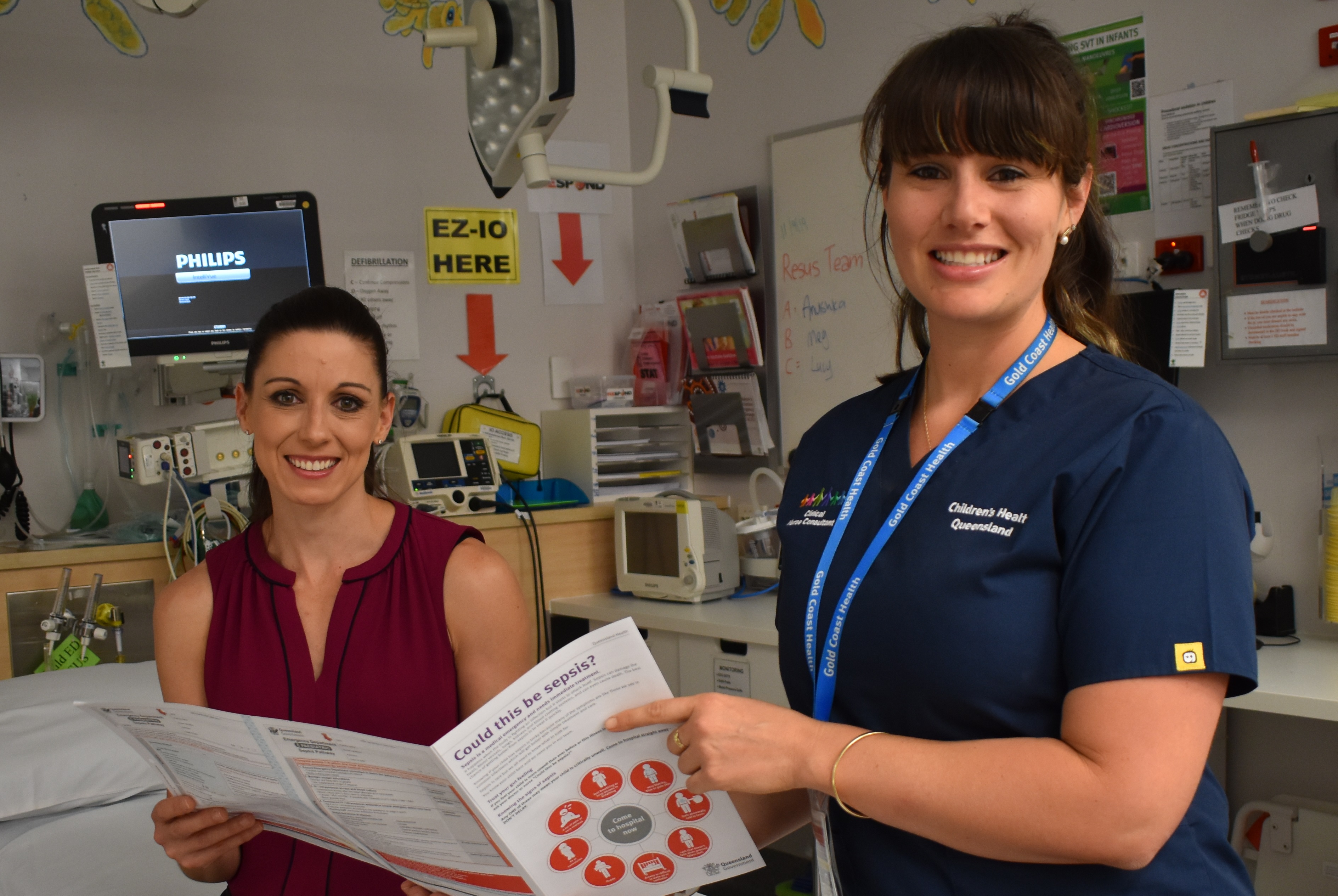
#StopSepsis! EMF injection in global race
September 2019
The Emergency Medicine Foundation (EMF) has boosted global efforts to save lives through Sepsis research just in time for the eighth World Sepsis Day on 13 September.
- EMF awards new sepsis research grant looking at role of parents in diagnosis
- Total EMF grant funding for sepsis hits $1 million
Sepsis is a leading cause of death and disability in children, globally accounting for more than one million childhood deaths per year.
Clinician-researchers based at Gold Coast University Hospital (GCUH) and Children’s Health Queensland will use almost $40,000 grant funding to investigate whether assessing parental concern can improve sepsis recognition in children.
EMF General Manager, Dr Sonĵ Hall said the ‘Can assessment of parental concern improve sepsis recognition in children?’ project brings EMF’s investment in Queensland-led sepsis research to $1 million.
“The recognition of sepsis, particularly in children, continues to be challenging and EMF recognises this is an important topic for further research,” Dr Hall said.
“This is one of nine new grants worth $699,662 EMF has awarded to fund emergency healthcare research projects thanks to funding from Queensland Health.
“I’m really excited to see what further inroads the research we are funding can make to improve current best practice in emergency care for sepsis, and save more young lives as a result.”
Australia’s first and only dedicated paediatric sepsis Clinical Nurse Consultant Amanda Harley will lead the study. Amanda is responsible for educating staff in 16 hospitals across Queensland about detecting and treating paediatric sepsis, and will expand on the important research already improving outcomes for children fighting sepsis.
“I am incredibly grateful for the support EMF is providing to fund an investigation that will test whether a standardized assessment of parental concern improves diagnostic accuracy when telling children with sepsis apart from those with mild infections,” Ms Harley said.
“Parents of seriously ill children play a vital role in the first crucial hours of sepsis detection. It’s my hope to capture that information more formally by giving parents of children who present with suspected Sepsis a survey to fill out.”
Amanda explains the questionnaire will be designed to detect concern themes from parents responses with a view to adding value to the data pulled from routine clinical criteria that help predict sepsis.
“I’m really fortunate to have collaborative support from the Queensland Paediatric Sepsis Collaborative and the data from this observational study will feedback into the Queensland Paediatric Sepsis Pathway.”
In addition to Amanda’s study, EMF has granted $99,975 in funding for the ‘Early resuscitation in paediatric sepsis’ study, $96,081 to the ARISE Fluids study and $100,000 to the ‘Rapid diagnosis of sepsis in acutely ill children’ study.
Other clinician-researchers involved in these studies include emergency medicine specialists:
- Dr Peter Snelling (Queensland Children’s Hospital)
- Professor Gerben Keizjers and Dr Meagan King (Gold Coast University Hospital)
- Dr Julian Williams and Professor Louise Cullen (Royal Brisbane Hospital).
- Paediatric intensive care specialist Associate Professor Luregn Schlapbach (Children’s)
- Intensive care specialist Professor John Fraser (The Prince Charles Hospital).
Collaborating institutions include:
- The University of Queensland
- Gold Coast Hospital Foundation
- Children’s Hospital Foundation
- Torres and Cape Hospital and Health Service
Pictured: Sepsis clinician-researcher, Amanda Harley, with the mother of a sepsis patient, Tiffany Ritchie. Image courtesy Gold Coast Health.
Posted: 13 September 2019
SHARE



